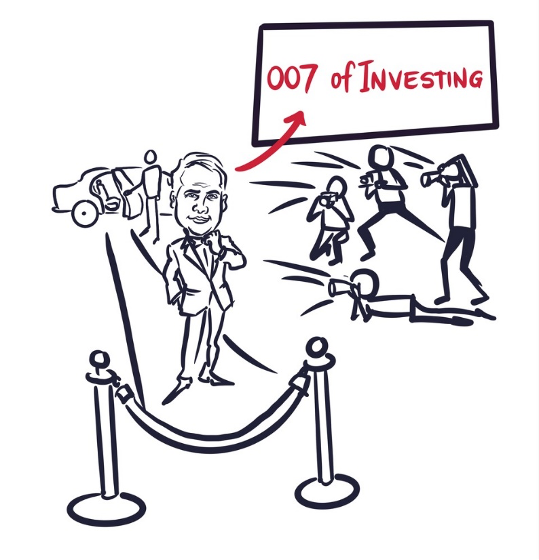 | | Robert Ross | Here's a secret about investing that the mainstream doesn't want you to know... The markets respond to only four factors... Earnings, valuations, sentiment and liquidity. And if everything comes together - that's a big "if" - we could see even higher stock prices over the next 12 months. But we need a few pieces to fall into place. [Alexander Green Invested $100,000 Into 1 Stock! Discover Where He's Invested $100K+ Right Now. ] ] What the Economy Is Telling Us There are a few reasons to be optimistic right now. First, economic growth is accelerating. The latest GDP growth figure came in at 2.4%, topping the expected 2%. Second, consumers are still spending. Since nearly 70% of the U.S. economy is fueled by consumer spending (i.e., you and me buying goods and services), that means the engine of the economy is still humming. Third, housing prices and the stock market are rising again. This should make consumers even more confident, creating a positive feedback loop. But the stock market is not the economy. For this rally to last, we need a few things to go right over the next 12 months. Getting Expensive At a P/E of 26.5, the S&P 500 is trading at its most expensive valuation in two years. Investors are happy to pay higher prices today in expectation of an earnings recovery next year. This idea isn't too far-fetched. Some 80% of companies have beaten earnings estimates during the current earnings cycle. As for sentiment, the American Association of Individual Investors Survey shows 49% of investors are currently bullish... 
View larger image That's near 2023's high and is supported by the put-call ratio. That metric shows investors are leaning bullish (anything under 1.0 is considered a bullish reading)... 
View larger image So earnings, valuations and sentiment are all near the sweet spot. But liquidity may be an issue... thanks to the Federal Reserve. The Ball Is in the Fed's Court Many investors now expect a "soft landing" for the economy. They're convinced (and the media has certainly encouraged them) that the highest interest rates in 22 years won't lead to recession. Now that red-hot inflation has been (mostly) cooled by a series of rate hikes, the futures market expects the Fed to cut interest rates in May of next year... 
View larger image That's one reason stocks - and valuations - are so high today. But this forecast will prove to be accurate only if inflation continues to decline over the coming months... Which is another big "if." A Repeat of the 1970s? Folks shouldn't assume that inflation will continue to fall. First, energy prices are ticking up again as oil moves toward a six-month high... 
View larger image Since energy prices are a major component of the consumer price index (CPI), higher oil prices translate to a higher inflation rate. Second, back in the 1970s, when the U.S. dealt with persistently stubborn inflation, we saw multiple surges in the CPI after it seemed like inflation had been contained. 
View larger image If energy prices keep rising and inflation surges along with them, we could see the Federal Reserve raise interest rates higher than the market is currently pricing in. And if that happens, pricing in rate cuts next year would be a pipe dream. Now, a flare-up in inflation is far from certain. Many of the structural issues that drove inflation higher in the 1970s - like the OPEC oil embargo and the Iranian Revolution - are not factors today. Plus, lesser-known measures of inflation like Truflation are showing rates near the Fed's 2% target... 
View larger image Still, my goal is to help you see the risks many investors overlook. And based on the futures market, investors are completely ignoring the possibility of a second inflation wave. What We Need to Go Right For this rally to continue, we need the following things to happen over the next 12 months... - Inflation stays subdued and near the Fed's 2% target.
- The Federal Reserve pauses rate hikes and then cuts interest rates.
- Consumers remain confident in the economy and keep spending.
- S&P 500 earnings growth accelerates further to bring down valuations.
- Investor sentiment stays bullish (but not so bullish that it exhausts buyers).
All of these things are attainable. But we need to stay vigilant. If any one of them doesn't happen, it'll be bad news for a market that's currently priced for perfection. Stay safe out there, Robert Want more content like this? | | | | | Robert Ross Robert Ross' unique style of clear and direct stock research has helped him build a massive following in the investment research industry. He started his career at investment research company Mauldin Economics, where he quickly rose through the ranks to become the youngest chief analyst in the industry. Today, over a million investors turn to Robert every month for his take on investing, economics and personal finance. He now shares his unique insights in Manward Financial Digest and Manward Letter. | | | | 










No comments:
Post a Comment